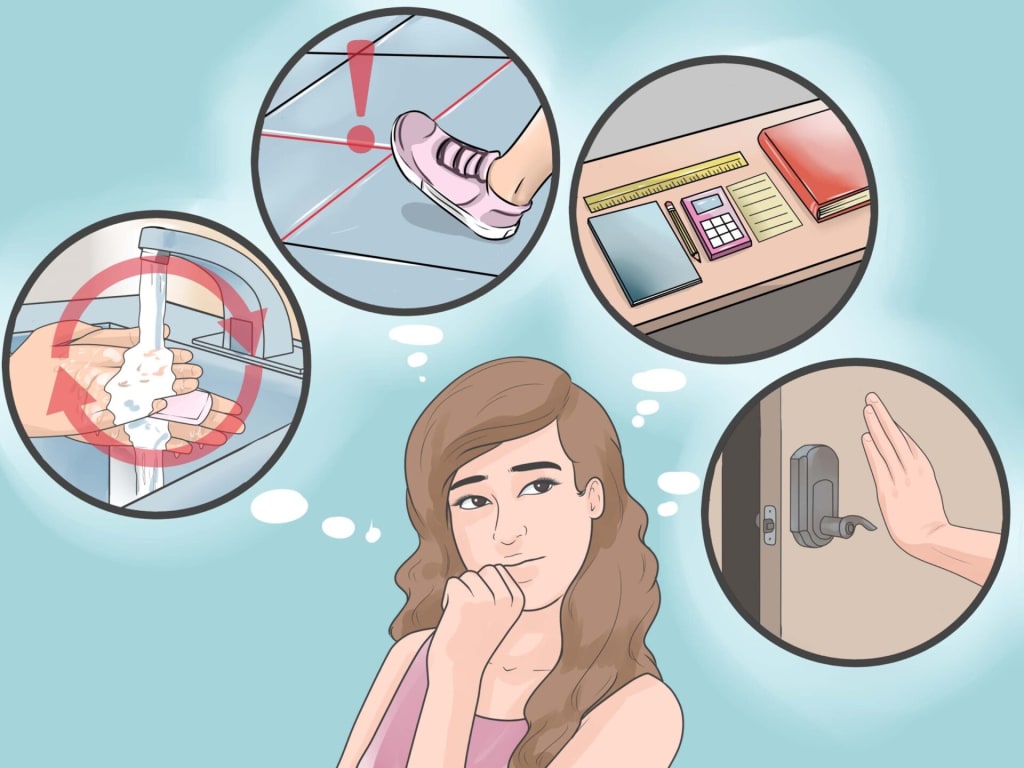The Benefits of Cognitive Behavioral Therapy (CBT) for OCD
The Benefits of Cognitive Behavioral Therapy (CBT) for OCD

Obsessive-compulsive disorder (OCD) is a mental health condition characterized by repetitive and intrusive thoughts (obsessions) and behaviors (compulsions) that the individual feels compelled to perform. OCD can have a significant impact on an individual's quality of life and can lead to impaired functioning in daily life. While there are several treatment options available for OCD, cognitive-behavioral therapy (CBT) has emerged as an effective intervention that can help individuals manage their symptoms and improve their overall well-being.
What is Cognitive-Behavioral Therapy (CBT)?
CBT is a form of psychotherapy that focuses on identifying and modifying negative thought patterns and behaviors that can contribute to mental health conditions. In the context of OCD, CBT typically involves exposure and response prevention (ERP) therapy. ERP is a type of CBT that involves gradually exposing the individual to the feared situation or object (exposure) and preventing them from performing their compulsive behaviors (response prevention). Over time, this can help the individual reduce their anxiety and increase their ability to tolerate uncertainty.
How Does CBT Help OCD?
CBT is an evidence-based treatment for OCD and has been shown to be effective in reducing symptoms and improving quality of life for individuals with the disorder. There are several ways in which CBT can help individuals with OCD:
Reducing Obsessions and Compulsions
The primary goal of CBT for OCD is to reduce the frequency and intensity of obsessions and compulsions. By gradually exposing the individual to their fears and preventing them from engaging in compulsive behaviors, ERP can help the individual learn to tolerate their anxiety without performing their compulsions. This can ultimately lead to a reduction in obsessive thoughts and compulsive behaviors.
Changing Thought Patterns
CBT can also help individuals with OCD identify and modify negative thought patterns that can contribute to their symptoms. For example, individuals with OCD may have irrational beliefs about the consequences of not performing their compulsive behaviors. By challenging these beliefs and replacing them with more realistic thoughts, CBT can help individuals with OCD reduce their anxiety and improve their overall well-being.
Improving Coping Skills
CBT can also help individuals with OCD develop better coping skills to manage their symptoms. By learning how to tolerate uncertainty and cope with anxiety, individuals with OCD can improve their ability to function in daily life and reduce the impact of their symptoms on their overall well-being.
Benefits of CBT for OCD
Evidence-Based Treatment
CBT is an evidence-based treatment for OCD and has been shown to be effective in reducing symptoms and improving quality of life for individuals with the disorder. Research studies have consistently demonstrated the effectiveness of CBT for OCD, with many studies showing that CBT can produce significant improvements in symptoms compared to other treatments or no treatment.
Non-Invasive Treatment
CBT is a non-invasive treatment that does not involve medication or other invasive procedures. This can be especially beneficial for individuals who are unable or unwilling to take medication or who prefer to avoid medication due to concerns about side effects.
Personalized Treatment
CBT for OCD is a personalized treatment that is tailored to the individual's specific needs and symptoms. This can help ensure that the treatment is effective in addressing the individual's symptoms and improving their overall well-being.
Collaborative Treatment
CBT for OCD is a collaborative treatment that involves the individual working closely with their therapist to develop a treatment plan and work towards their treatment goals. This collaborative approach can help the individual feel more engaged in the treatment process and increase their motivation to make positive changes.
Long-Term Benefits
CBT for OCD can produce long-term benefits that can persist even after the treatment has ended. By learning new coping skills and developing a more positive outlook, individuals with OCD can continue to manage their symptoms and improve their overall well-being even after they have completed their treatment.
Improved Quality of Life
CBT for OCD can help individuals improve their quality of life by reducing the impact of their symptoms on their daily functioning. By learning how to manage their symptoms, individuals with OCD can improve their ability to work, socialize, and engage in other activities that they enjoy.
The Role of an OCD Psychiatrist in CBT
While CBT for OCD can be delivered by a variety of mental health professionals, including psychologists and licensed therapists, an OCD psychiatrist can play a key role in the treatment process. An OCD psychiatrist is a mental health professional who specializes in the diagnosis and treatment of OCD and related conditions. They can provide a comprehensive evaluation to determine the best course of treatment for the individual and monitor their progress throughout the treatment process.
An OCD psychiatrist can also prescribe medication if necessary. While medication is not typically the first-line treatment for OCD, it can be helpful in reducing symptoms in some individuals. An OCD psychiatrist can work with the individual to determine if medication is a viable option and monitor their response to the medication.
In addition, an OCD psychiatrist can provide ongoing support and guidance throughout the treatment process. They can help the individual navigate any challenges that arise during treatment and provide additional resources or referrals as needed.
Conclusion
CBT is a highly effective treatment for OCD that can help individuals reduce their symptoms and improve their overall well-being. By focusing on modifying negative thought patterns and behaviors, CBT can help individuals with OCD learn to manage their symptoms and improve their ability to function in daily life. While CBT can be delivered by a variety of mental health professionals, an OCD psychiatrist can play a key role in the treatment process by providing a comprehensive evaluation, monitoring progress, prescribing medication if necessary, and providing ongoing support and guidance. If you or someone you know is struggling with OCD, consider seeking out the support of an OCD psychiatrist and exploring the benefits of CBT.





Comments
There are no comments for this story
Be the first to respond and start the conversation.